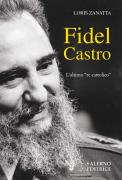Fidel Castro

Neither a Marxist icon, nor a fruit of the Cold War: Fidel Castro, the last Catholic King, is the most consistent heir, in the contemporary age, of Hispanic Christianity in Latin America. Galician and Cuban, Jesuit and Communist, his human and political parable is the ideal continuation of the eternal struggle of Catholic Spain against the Enlightenment first and liberal modernity later, daughters of the Protestant world. His biography, his training, his moral universe, his political and social imaginary, his regime, express the organic conception of the world typical of that heritage; its visceral hatred of liberalism, representative democracy, individual freedoms, market economy and Western countries are its natural corollary. Fidel Castro emerges in this volume as a religious rather than a political leader; as King and Pontiff of a confessional order that merged what liberalism had separated: politics and religion, individual and community, state and society. The totalitarian nature of his regime did not imitate the socialist allies, but was the spontaneous fruit of the anti-liberal matrix of Latin populism: Phalangism, Peronism, Chavismo are its closest relatives. His state was an ethical state dedicated to catechizing the faithful and with the cross of his sword and his enemies. His communism is a Christian utopia, culminating in the invocation of the union of Christians and Muslims against liberal and capitalist sin. He promised prosperity, he died singing praises to evangelical poverty: the fruit of his economic disasters.